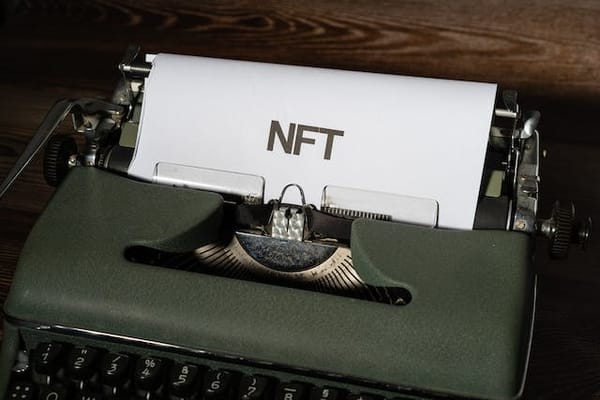Financial Literacy for Kids: Guiding the Future of Money Management
Shape a financially savvy future with our guide: Financial Literacy for Kids. Equip the next generation with essential money management skills for a lifetime of financial success

As adults, it's easy to overlook the financial education of youngsters. However, establishing a healthy relationship with money is crucial for their long-term success. In this day and age, where spending and saving are influenced by countless external factors, instilling financial literacy in children is an investment in a secure financial future. Whether you're a parent navigating the waters of teaching your child about money or a financial advisor seeking to empower young minds, this blog post will provide you with the strategies and importance of imparting these vital skills to our next generation.

Why Teach Money Skills to Kids?
The value of learning about money at a young age is often underappreciated, as it might seem too early for children to understand complex financial concepts. However, the benefits of early financial education are substantial and long-lasting. By starting young, children have more time to develop informed habits, which will shape their financial behavior in adulthood.
Long-term benefits include a reduced likelihood of overspending, increased capability for strategic savings, and a more prepared approach to financial independence. Furthermore, when kids have a basic understanding of economic principles, they can grasp complex matters such as interest rates and loans as they grow older.
Building a strong foundation of financial literacy ensures that kids are equipped with the skills to navigate an increasingly complex financial world. This involves not only teaching the mechanics of saving and spending but also focusing on the mindset behind making responsible financial decisions.
Key Money Skills for Kids
From the piggy bank era to the digital allowance, financial literacy in children has gone through an evolution. Today, it's essential to introduce key financial concepts in a way that is relevant to their daily lives and future prospects.
Saving
Teaching the importance of saving is a cornerstone of financial education. Children should learn the value of setting aside money for future needs or goals. Encouraging regular saving habits can be as simple as utilizing a clear jar for savings or opening a child's bank account. Setting clear goals, whether it's for a toy they want to purchase or a college fund, makes the concept of saving tangible and rewarding.
Budgeting
Budgeting is the art of making a plan for your money. Kids can create basic budgets around things they spend money on regularly, such as snacks, toys, or games. This helps them understand that money is finite, and choices must be made. When a child wants to buy a new toy, they should learn to consider how that purchase impacts other financial goals or needs.
Earning
Introduce the concept of earning money by providing opportunities to do tasks around the house or in the neighborhood. Assigning a monetary value to tasks helps children understand the relationship between work and income. It also reinforces the importance of contributing to the family and community.
Spending wisely
Help kids distinguish between needs and wants. When making purchases with their own money, children can assess the necessity of an item and learn the concept of value. Encouraging comparison shopping and hunting for deals can also make spending decisions more strategic.
Teaching Strategies for Parents
For parents, the task of teaching financial literacy can be both daunting and rewarding. Fortunately, there are several strategies that can greatly simplify this important learning process and make it enjoyable for everyone involved.
Lead by example. Your own financial habits can be the most influential lesson for your child. Be conscious of your spending and saving behaviors, and discuss the reasons behind your financial decisions with your child.
Make it fun and interactive. Financial education doesn't have to be all numbers and transactions. Board games like "Monopoly" or digital apps that simulate money management can be entertaining ways to learn about value and responsibility.
Incorporate real-life situations. Take advantage of everyday occurrences, such as grocery shopping or paying bills, to talk to your child about money. Explain the process of budgeting for groceries or share the considerations behind purchasing big-ticket items.

Incorporating Financial Literacy in Education
The incorporation of financial literacy into formal education can provide a structured and comprehensive approach to learning about money. Below are several strategies for seamlessly weaving these skills into the educational experience.
Curriculum integration. Schools can integrate financial literacy into math, social studies, and other relevant subjects. By connecting money skills to academic learning, children can appreciate the real-world applications of their education.
Age-appropriate activities. Financial education should be tailored to the cognitive and emotional development of the child. Younger kids may start with simple concepts of counting money, while older children can tackle more nuanced topics like investment and entrepreneurship.
Collaborating with parents. Schools can support parents in reinforcing financial lessons at home. This could include providing educational materials, hosting family workshops, or offering guidance on how to continue money conversations in the household.
The Role of Financial Advisors
Financial advisors play a critical role in spreading the message of financial literacy. By liaising with parents and educators, they can create concerted efforts to improve the financial IQ of the younger generation.
Educating parents and educators. Many adults feel inadequately prepared to teach kids about money. Advisors can host workshops and provide resources that equip adults to have meaningful conversations about financial topics with children.
Providing resources and tools. Financial advisors can create age-appropriate materials like storybooks, board games, and online tools that simplify complex financial topics. These resources can serve as engaging supplements to formal education and parental guidance.
Financial literacy programs. Developing or supporting existing programs that focus on financial literacy can be a direct way for financial advisors to contribute to their community and promote a financially savvy next generation.
Encouraging Financial Literacy for Kids and its Impact on their Future Success
The importance of financial literacy for kids cannot be overstated. By teaching money skills at an early age, we pave the way for a lifelong competence in managing personal finances. This is more than just a practical skill—it's a key factor in determining a child's future success and economic well-being.
As we journey through the complexities of modern finance, let's not forget the young minds who will inherit this world. Let's empower them with the knowledge and skills necessary to make sound financial decisions, so they may lead a life unencumbered by avoidable financial pitfalls.



